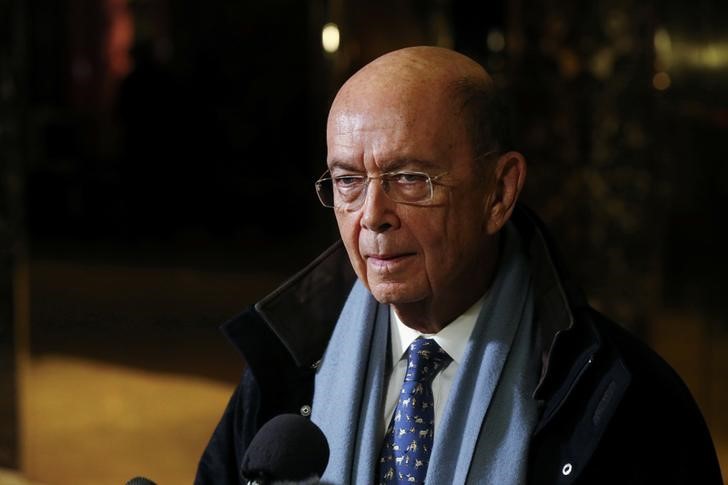By Mitra Taj and Roberta Rampton
LIMA/WASHINGTON, April 13 (Reuters) - Latin American leaders will gather in Lima, Peru, on Friday at a summit the United States hopes to use to counter China's rising influence in the region, despite U.S. President Donald Trump's last-minute decision not to attend.
The official theme of this year's Summit of the Americas, where heads of state in the Western Hemisphere will meet through Saturday, is corruption. Several countries attending also plan to condemn Venezuela's upcoming election.
But U.S. and Chinese trade will loom large over talks as a heated dispute between the world's two biggest economies continues to fan fears of a trade war.
The tensions spilled over into Latin America this week, with U.S. Commerce Secretary Wilbur Ross disparaging Chinese trade in a speech in Lima and promising that Washington will not cede leadership in the region to "authoritarian states."
Ross said U.S. trade was better for local economies, and called on Latin American leaders to do more to lower tariffs and cut red tape. some who had traveled to Lima said the United States had lost sway.
"Trump's plan seems to be to ensure the U.S. is no longer the world's leader," Gustavo Grobocopatel, the chief executive of an Argentine agricultural group, told Reuters at a joint summit for business leaders on Thursday.
In the past week, Trump has threatened to slap more tariffs on Chinese goods, said he was in no hurry to reach a deal on the renegotiation of the North American Free Trade Agreement (NAFTA), and ordered his advisors to study rejoining the TPP. U.S. President Barack Obama had pitched the TPP, or Trans Pacific Partnership, as a way to give the United States an edge over China in a fast-growing region that includes large swaths of Latin America.
But Trump called the TPP a job-killer and withdrew the United States from the multilateral trade deal in one of his first acts as president.
So far, it has been unclear what might replace it.
"No one wants to do bilateral trade deals with the United States, and Trump had no Plan B," said Robert Manning, an Asia expert and senior fellow at the Atlantic Council. "Trump's anti-globalism has been mugged by reality."
But commerce secretary Ross said it was too early to write off Trump's strategy.
"This is an administration you should judge by its end results, not by theories about what may be the results," Ross told journalists.
The White House said on Tuesday that Trump had decided to call off his trip to Peru - which would have been his first trip to Latin America as president - to focus on Syria following a suspected chemical weapons attack. Thursday, his top trade official Robert Lighthizer also canceled, and U.S. Vice President Mike Pence, who will stand in for Trump at the summit, scheduled meetings that did not include a one-on-one with Mexico's president, dimming hopes the United States would make progress on a NAFTA renegotiation.
LEADERS UNDER SCRUTINY
Erika de la Garza with the Latin America Initiative at Rice University, called Trump's absence at the summit "regrettable." "The more the U.S. steps down, I think the more China can step in," de la Garza said.
But Latin Americans took it in stride, even as it deepened the view the region was being snubbed.
"It's not surprising. It shows the priority President Trump gives to Latin America," a Brazilian government source who asked not to be named said. "But it doesn't mean we can't make progress on certain issues. On the contrary, it may help."
The summit will also spotlight a tough moment for Latin American leaders. Less than a month ago Pedro Pablo Kuczynski, the former president of host Peru, resigned due to one of scores of graft scandals in Latin America that have battered trust in politicians and institutions in recent years.
Analysts have flagged potential political risks to investments in Latin America as elections loom in regional heavyweights like Brazil, Colombia and Mexico.
In Lima, kiosk owner Cesar Alarcon said he wishes Peruvian presidents had Trump's nationalist flair. "They always promise to put Peru first and end up favoring business interests," Alarcon said as he sold newspapers. "I think Trump's someone who's looking out for his country."
Peruvian President Martin Vizcarra, a former vice president who took office last month, said public frustration with elected authorities and private companies had reached a fever pitch.
"It affects not just the economy, but democratic governability itself," Vizcarra said in a speech on Thursday.
Vizcarra will meet one-on-one with Pence on Friday.
In a new diplomatic blunder for the Trump administration, Pence's office published a schedule for his trip on Thursday that mistakenly said he would dine with Peru's disgraced former leader Kuczynski instead of Vizcarra.
Early on Friday morning, the White House corrected the error.
